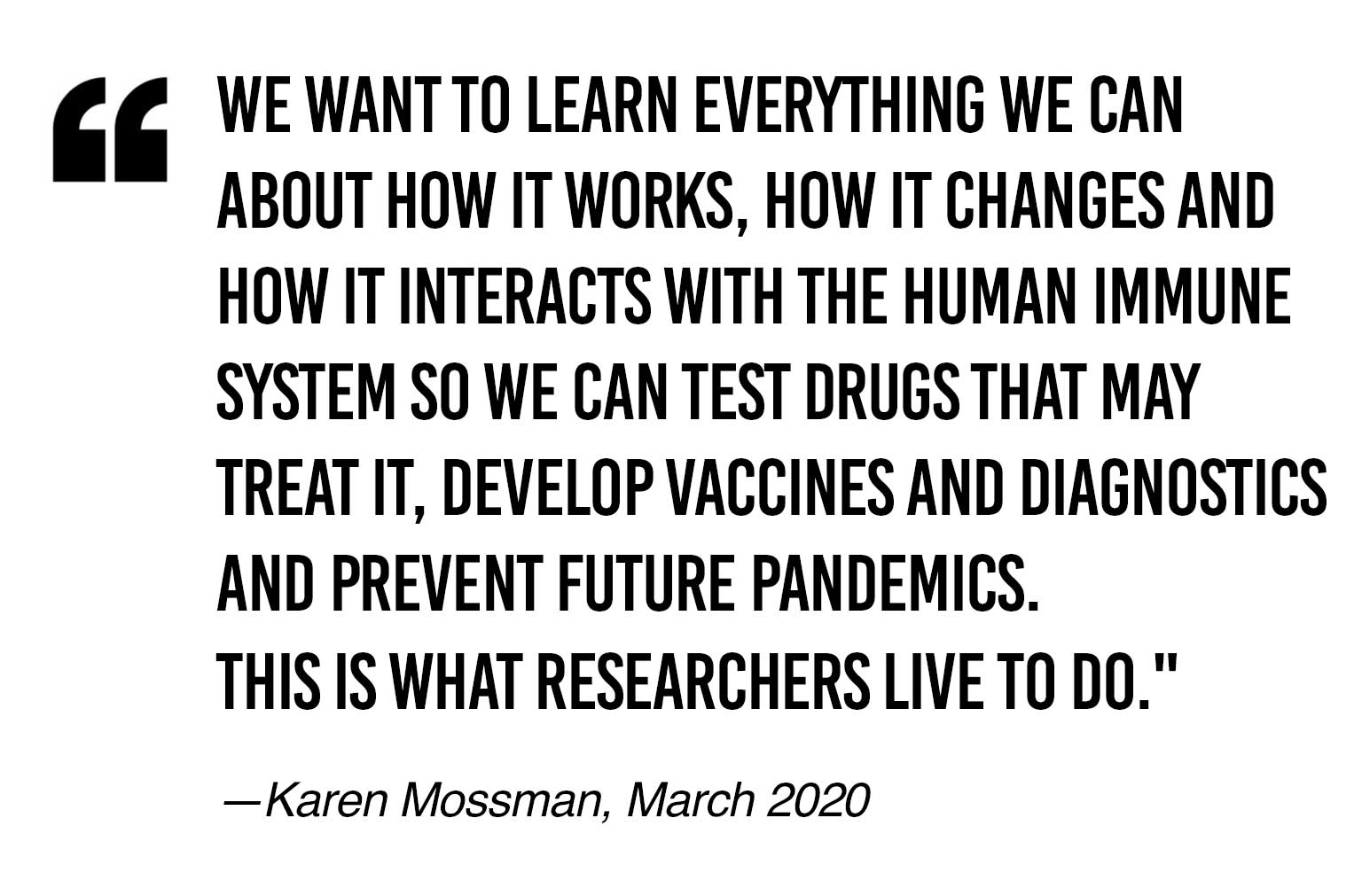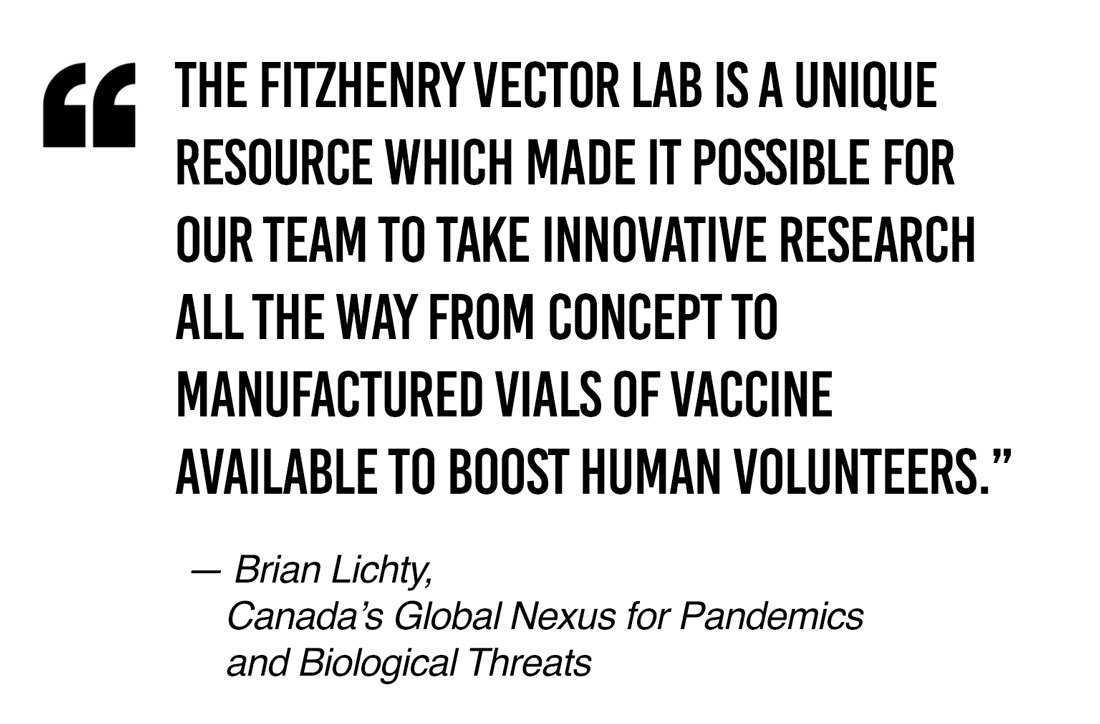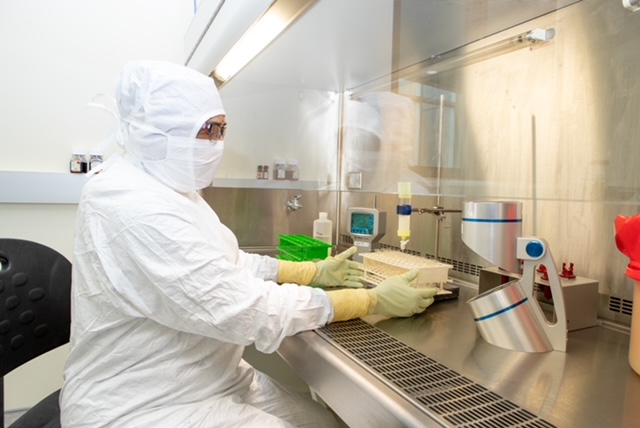COVID-19 is not our first pandemic, and it won’t be our last. We are bound to face further risks to global health — from unexpected novel pathogens or from long-predicted drug-resistant superbugs.
But next time, we’ll be ready.
Canada’s Global Nexus for Pandemics and Biological Threats builds on McMaster University’s established position as a world leader in infectious disease research, evidence-based medicine and advanced manufacturing.
Strategically located in Hamilton, it is a hub for international networks of experts and partners who can act fast and act together in the face of serious and emerging threats to our global well-being.
“Working with our national and international partners, we’re ramping up scientific discoveries and solutions around infectious disease and antimicrobial resistance, but also looking at the global economic and social impacts of biological threats,” says Gerry Wright, lead of Canada’s Global Nexus and a global leader in antibiotic discovery. “With a deeper, more comprehensive understanding of these threats and others, we’re better prepared to address them.”
From early work identifying the virus to developing a vaccine designed to beat variants, here are 11 examples of how Canada’s Global Nexus is leading the fight against COVID-19 and other biological threats.
1) Isolating SARS-CoV2: McMaster scientists in virologist Karen Mossman’s lab were among the first in Canada to isolate the agent responsible for COVID-19 and share this critical resource with researchers across the country, paving the way for the development of vaccines and treatments.

2) Inhaled vaccines that fight variants: Human trials are beginning on second-generation vaccines that go directly to the lungs to combat variants of concern. Canada’s Global Nexus researchers from different disciplines worked together at McMaster’s Robert E. Fitzhenry Vector Laboratory to develop and manufacture these vaccines.

3) Seminal work on vector vaccines: Millions of people worldwide owe their health and lives to molecular virologist Frank Graham’s game-changing research on viral vectors at McMaster. In fact, his work on the Ad5 vector forms the platform for some of the COVID-19 vaccines people are receiving today.
4) Blood clots and vaccines: Researchers at McMaster’s Platelet Immunology Lab are acknowledged leaders in studying blood clots related to COVID-19 and the vaccines that protect against it. The lab is the only place in Canada equipped to identify, diagnose and treat these clots.
5) Better protection for Canadians: The Centre of Excellence in Protective Equipment and Materials at McMaster is Canada’s first research hub dedicated to developing, testing and validating personal protective equipment. The centre draws on the expertise of an established network of engineers, clinicians and manufacturers, developing resources and innovations to help keep Canadians safe.
6) Shaping sound policy: The COVID-19 Evidence Network to support Decision-making (COVID-END) brings together experts who synthesize research on the impact of public health measures, clinical management, health-system arrangements, and economic and social policy on Canadians’ health and safety.
7) Protecting older adults: Canada’s Global Nexus researchers are working with community organizations and long-term care homes to ensure that older adults are protected from COVID-19 and its impact on their physical, mental and social health.
Our researchers are mobilizing data from the Canadian Longitudinal Study on Aging, the largest cohort study of aging in Canada, which is based at McMaster, for a comprehensive study of the immediate and long-term effects of COVID-19 on older adults.
8) Working with vulnerable populations: Canada’s Global Nexus researchers are working with diverse immigrant and Indigenous communities to better understand community members’ immune response and how to increase vaccine confidence.
9) Long COVID: As rising vaccination rates help us put the worst of the pandemic behind us, our researchers are turning their attention to how and why some COVID-19 survivors suffer lingering effects from the virus.
10) The post-COVID world: Researchers across disciplines at McMaster are also studying the social, cultural, economic and political impact of the pandemic and our collective and individual response to it.
11) AMR: The next pandemic: Antimicrobial resistance remains one of the gravest threats to our health and safety. Canada’s Global Nexus researchers are leading pioneering work in antibiotic discovery and drug development.



